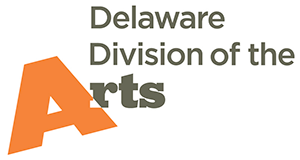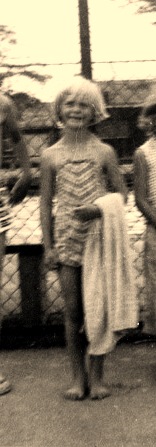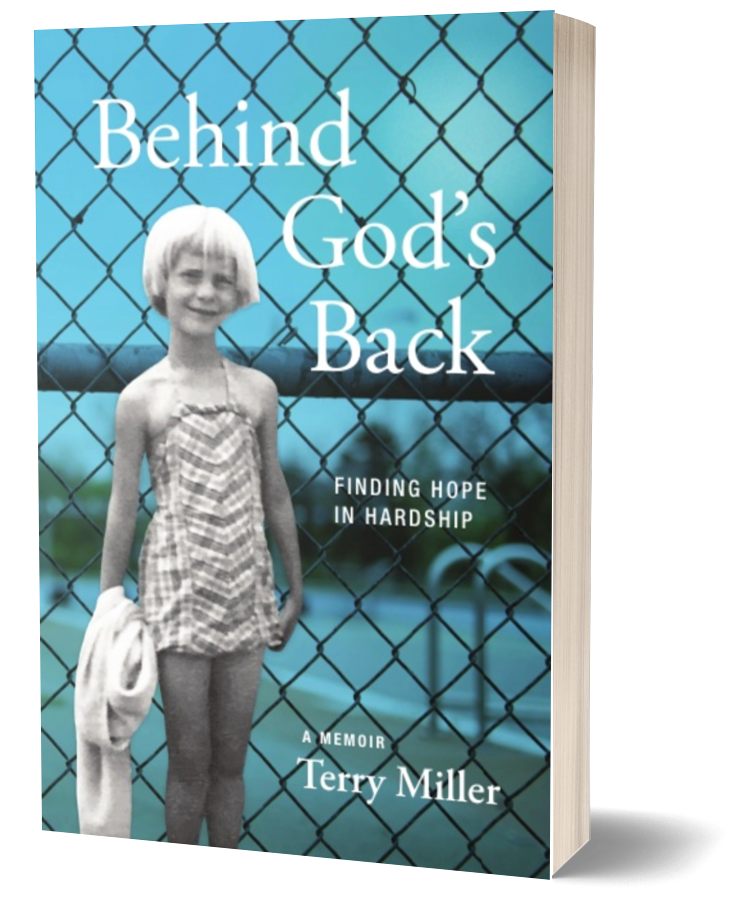Miller’s book, Behind God’s Back: Finding Hope in Hardship is supported, in part, by a grant from the Delaware Division of the Arts, a state agency, in partnership with the National Endowments for the Arts. Learn More »


Bio & CV
Terry Miller is Director Emerita of the University of Pittsburgh Institute of Politics and currently lives in Milton, Delaware where she writes, practices Zen Buddhism, and works to support human services agencies. Miller is an award-winning author, visionary consultant, advocate, and speaker working on issues of social, economic, and racial inequality, living with substance use disorder, poverty and food insecurity, and childhood trauma.
Download CV (PDF)In September 2005, Chancellor Emeritus Mark A. Nordenberg named Terry Miller director of the University of Pittsburgh Institute of Politics. The Institute delivers timely information about the great issues affecting our region to elected officials and community leaders, and provides a neutral forum where that knowledge and associated diverse viewpoints are debated and consensus built to improve the quality of lives of the citizens of our home region.
In 2014, Miller received a special honor to also serve as director of the Institute’s newly established Elsie H. Hillman Civic Forum. Supported by a generous endowment from Mr. Henry Hillman, the Elsie Forum will bring community leaders and young people together for educational programs, research projects, and mentoring opportunities designed to foster student interest and involvement in fueling civic progress in the Pittsburgh region.
Miller also has served as a consultant on special initiatives to The Pittsburgh Foundation, Allegheny County Department of Human Services, the Power of 32 Regional Visioning Initiative, and has served as an adjunct faculty member at the University of Pittsburgh School of Social Work and Graduate School of Public and International Affairs.
Miller has held a number of board and advisory council seats including with: the ACLU Greater Pittsburgh Chapter; Albert Schweitzer Fellowship Program; the U.S. Attorney Dick Thornburgh Policy Forum; the Allegheny County Criminal Justice Reform Task Force; the U.S. Attorney’s Regional Opioid Epidemic Task Force; and the United Way of Allegheny County Women’s Leadership Council.
She currently serves as a Board Trustee Member for The Pittsburgh Foundation that works to improve the quality of life in the Pittsburgh region by evaluating and addressing community issues and promoting responsible philanthropy; an Advisory Council Member of the Pennsylvania Organization for Women in Early Recovery (POWER); an Advisory Council Member for BehAIvior LLC, that advances mobile behavioral health and social interventions to enhance treatment protocols for opioid use disorder; and is the founder of the Our Daily Bread Fund at The Pittsburgh Foundation, a philanthropic endowment created to address childhood hunger in Pennsylvania.
Prior to her tenure at the Institute of Politics, Miller was founder and first executive director of POWER, a non-profit organization she helped established to provide gender- and culturally-specific treatment & support services to women who are changing their lives through recovery from addiction to alcohol and other drugs—30,000 women have now gone through POWER. In 1995 Miller won the J. C. Penney Golden Rule Award for her work to create POWER, and in 1998 she received a letter of commendation from President Bill Clinton also for her work to establish POWER.
More recently, Miller also has been the recipient of other awards, including being recognized by her colleagues and Pennsylvania Governor Tom Wolfe as a 2022 Distinguished Daughter of Pennsylvania for her outstanding achievements in public service; the 2021 Delaware Division of the Arts, in partnership with the National Endowments for the Arts, Artist Fellowship Award for Nonfiction; the 2019 University of Pittsburgh School of Social Work Master Community Organizer Award; the 2013 recipient of the POWER Window of Hope Award; and the Racial Justice Award from the Urban League of Greater Pittsburgh among others.
Miller is an inspirational speaker and has presented at national and local conferences and special events on issues of race, gender and public policy, sexual abuse, substance use disorder, poverty and food insecurity, and healing from childhood trauma. A true visionary whose personal life is a testimony to the human spirit, her compelling story inspires audiences to look at the big picture of their own lives, encouraging them to aspire to be the best version of themselves possible.

Published Work
New Book — Memoir
Behind God’s Back: Finding Hope in Hardship Memoir writing, especially concerning experiences of hardship and suffering, is not only an increasingly popular form of literature, but a proven tool for healing the mind, body, and soul. My story takes the reader through the depths of my troubled past: growing up in the projects, collecting pop bottles to put food on my family’s table, raising my kid brother, surviving the unwanted advances of family members and strangers, and developing a dependence on drugs and alcohol to survive all of that. As the book progresses, I find recovery and my life is altered for the good.
Recovery memoirs that are well done will show the beauty and healing that comes out of adversity or pain. I believe Behind God’s Back does this. Going beyond offering a story about childhood trauma, or a passing promise of hope, readers are invited to participate in a deeper healing by following my transformation from insurmountable traumas to a recovering woman effecting positive, tangible change in her community. My book highlights the importance of integrating community, society, and meaningful human relationships to heal personally, while cultivating the resources to be of service to others, when we are ready, and sometimes, even when we are still healing.
Whether the reader is someone in recovery, looking to get into recovery, or treating or loving individuals healing from abuse and addiction, Behind God’s Back: Finding Hope in Hardship will provide you with a modeled, replicable, lifelong process to heal from trauma and reclaim your worthiness and sense of purpose.
Publications (Authored and Edited Works)
- A Continuum of Care: Western Pennsylvania's Response to the Opioid Epidemic. Fall 2016.
- Poverty Beyond the Urban Core. Fall 2016.
- Criminal Justice in the 21st Century: Improving Incarceration Policies and Practices in Allegheny County. Fall 2016.
- Never A Spectator: The Political Life of Elsie Hillman. Spring 2012
Stories
- “Sticks & Bones”
Pittsburgh Quarterly
2015 Winter
Finalist, Golden Quill Award - “Honey, I Have An Idea…”
Pittsburgh Quarterly
2016 Fall - NPR StoryCorps: Terry Miller and Lisa Scales
Public Speaking Engagements
- January 2022 Made Local: Terry Miller, Pittsburgh Arts & Lectures
- December 18, 2021
Book signing at Browseabout Book Store, Rehoboth Beach, Delaware



- December 11, 2021
Behind God’s Back reading and book signing Cannery Village, Milton Delaware


- June 16, 2021
Delaware Division of the Arts Awards Ceremony, Biggs Museum, Dover, Delaware.
Miller receives 2021 Individual Artist Fellowship for Artistic Excellence in Literature: Creative Nonfiction for her book, Behind God’s Back: Finding Hope in Hardship Award granted by DDOA in partnership with National Endowments for the Arts.



- 2016 Never A Spectator Student Program Welcome, Elsie Hillman Civic Forum
- 2014 Welcome to New Chancellor Pat Gallagher, Institute of Politics Elected Officials Retreat
- 2012 Never A Spectator: The Political Life of Elsie Hillman (book release)
- 2009 The Holistic Empowerment of Girls, Girls Coalition of Southwestern PA
- 2007 Evening of Hope Keynote Speaker, Pittsburgh Action Against Rape
- 2001 Sister-to-Sister, Keynote Address, Cross Cultural Dialogue, YWCA
- 1999 Project Quest—The Stigma of Addiction, Chatham College
Testimonials
Our nation has become increasingly aware of the epidemic of trauma and substance use disorders, and their interconnection and systemic impact. However moving from awareness to hope remains a challenge. Well-told stories are essential to bridging the gap, and Terry Miller can uniquely write such a powerful narrative. Her personal experience would be sufficient — transcending a childhood of severe living situations with few accommodations, and making her way from addiction to long-term recovery. But she can powerfully overlay her accomplishments as a community activist, university leader, and regional philanthropist, thus connecting the heart to the head. Her prose grounds the reader in the concrete details of personal credibility, enlightened by the “bigger picture” context in which she navigates professionally — a compelling combination.
As someone who educates by sharing my daughter’s story, I have every confidence that Terry’s story will inspire hope and service among the millions looking to break the cycle of poverty and addiction. The work will continue in her tradition as a passionate leader who has transformed personal tragedy into public good.”
— Melissa Weiksnar, Author, Heroin’s Puppet — Amy (and her disease), and Editor, It’s Not Gunna Be an Addiction — the adolescent journals of Amelia F. W. Caruso (1989 – 2009).
I met Terry Miller two decades ago following the overhaul of the nation’s welfare law. She was convening sessions at the University of Pittsburgh to bring together academics, social workers, journalists, and poor people to discuss how to make life better for the most disadvantaged people in the city. I had no idea at the time that Terry once counted herself among their ranks. She is not only the survivor of a harrowing past but a victor over it, and she has set out with a writer’s eye and social worker’s heart to tell her story and mine it for lessons that can help others summon the same resilience. I’ve admired the courage and tenacity of her effort and count it a privilege to have watched her find an ever-stronger voice.”
— Jason DeParle, Author: American Dream: Three Women, 10 Kids, and the Nation’s Drive to End Welfare.
In my 26 years of practicing Psychiatry I have met people who have struggled with devastating risk factors for mental illness, and yet who somehow have become adults with deep and abiding mental health. I have always stood in awe of those individuals. Terry Miller is a woman I met in my civic life, not my professional life. She eloquently shares with us a story that arouses in me that same sense of wonder.
She was born into a world filled with great obstacles — poverty, maternal illness, drug addiction, violence, neglect, and hunger. She shows us that a child with remarkable resilience can navigate her way through these obstacles to not only survive, but to build a life filled with meaning, courage, and generosity. She became highly educated, beautifully well spoken, and earned a degree in social work. Then, she took those tools and became a leader. She understands how to build trusting relationships, how to navigate systems, and how to lead others to work together to address some of the looming problems of our society.
As a psychiatrist, I marvel at her resilience. As a community volunteer, I am inspired by her leadership. As a reader, I am deeply moved by her writing. I count my lucky stars to be included in her circle of friends and fellow workers.”
— Edie Shapira, MD, Psychiatrist, Board Chair, The Pittsburgh Foundation, community volunteer, Member University of Pittsburgh Institute of Politics, Board of Fellows
Our Daily Bread Fund
For Terry Miller of Pittsburgh, PA, being hungry and going without food isn’t just a “societal” issue. It is personal. Growing up in a food insecure household, she knows well the stigma associated with hunger, the instability it created in the home, the struggles with learning, and both physical and behavioral health. As a result, she is fiercely committed to ensuring that no child experiences the anxiety of hunger that she did growing up.
Donate to the FundIn 2014, Terry decided to commit her retirement assets to establish the Our Daily Bread Fund at The Pittsburgh Foundation upon her death. The fund's purpose will be to support childhood hunger initiatives of the Greater Pittsburgh Community Food Bank through regular, annual contributions estimated at 5% of the endowment. In 2016, Terry realized that she didn’t want to wait until she passed away to begin funding these initiatives, and wanted to start and grow the fund in her lifetime.
By establishing a designated fund at The Pittsburgh Foundation to support—in perpetuity—the comprehensive childhood hunger initiatives of Greater Pittsburgh Community Food Bank, she acknowledges that the path to ending hunger for children and families is long and worthy of lasting, dependable investment.
“I am eager to enlist donors—large and small, individuals and corporations—to grow this fund now. To be clear, as a region, we will invest in these children whether through increased health care costs, special education and human services programs, or in lost productivity. Through The Fund and the comprehensive programs of the Greater Pittsburgh Community Food Bank, we have an opportunity to be smart about our investments…let’s feed them.”
You cannot tell a hungry child today that you gave them a meal yesterday. The poverty in those words is as heavy as the experience of hunger itself.” —Terry Miller
Contact Terry
Terry Miller’s life story is one of courage, resilience and exceptional accomplishment. She was raised in terribly challenging circumstances, involving drugs, hunger and deprivation. For some time, she believed that that was all that was possible. But, she embraced the chance for higher education. And once she had achieved a bachelor’s degree and a masters, there was no stopping. Terry became the executive director of the Institute of Politics at the University of Pittsburgh, and became renowned throughout Pennsylvania for her work and the great accomplishments of the center. Her life story is both a lesson and an inspiration. ”
— Maxwell King, President and CEO, The Pittsburgh Foundation

